#terrence higgins trust
Explore tagged Tumblr posts
Text


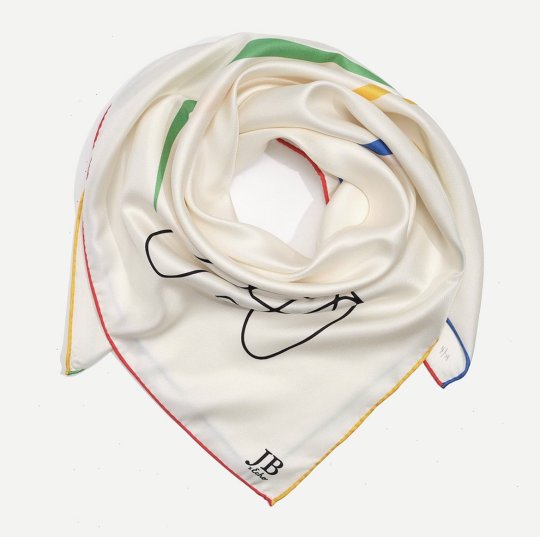

Jonathan Bailey designed a scar with Echo New York whose sales are going to benefit The Terrence Higgins Trust, a leading UK sexual health and HIV charity. Jonny's message: “To me, joy is both primary colours and cycling alongside an open vista.” You can buy it here
#jonathan bailey#jonny bailey#lgbtq+#lgbtqia#fellow travelers#echo new york#bridgerton#terrence higgins trust#charity
128 notes
·
View notes
Text
'Swansea Arena will host a special screening of the LGBTQ+ film Pride accompanied by a live orchestra, marking the 10th anniversary of the film’s release.
The event, titled Pride: Film with Live Orchestra – 10th Anniversary Special, will be held on 25 October and feature a live orchestral performance of the film’s soundtrack, with the backing of local choirs.
Pride, released in 2014, tells the true story of a group of lesbian and gay activists who supported striking miners in Wales during the 1984-85 miners’ strike. The film, directed by Matthew Warchus, received critical acclaim for its portrayal of this unlikely alliance.
The film is based on the real-life activities of Lesbians and Gays Support the Miners (LGSM), a London-based activist group formed in 1984. LGSM raised funds to support the families of striking miners in Onllwyn, a small village in Wales. The group’s efforts not only provided financial aid but also challenged societal prejudices and fostered unexpected friendships between the two communities.
Exploring themes of solidarity, prejudice, and social change against the backdrop of Margaret Thatcher’s Britain, the film highlights the parallels between the struggles faced by the LGBTQ+ community and the working-class miners.
Starring Bill Nighy, Imelda Staunton, Andrew Scott and Russell Tovey, the movie performed well at the box office and was nominated for a number of awards, including a Golden Globe and BAFTA. It also picked up Best Film at the 2014 Attitude Awards.
The performance will take place just 20 miles from Onllwyn, the village where much of the film’s action is set. Nathan Jones, conductor of The Alternative Orchestra, which will be performing the soundtrack, spoke about the upcoming spectacular.
“This performance gives audiences the opportunity to relive or experience for the first time this complex, challenging but joyous true story, set in a defining era for both the mining communities of Wales and the LGBT community across the UK,” he said in a statement.
The event will also serve as a fundraiser for the Terrence Higgins Trust, a charity working to end new cases of HIV in the UK by 2030. This partnership acknowledges the HIV epidemic that features in the lives of several characters in the film.
Tickets are available here.'
#Pride#Matthew Warchus#LGBTQ+#Terrence Higgins Trust#Onllwyn#Andrew Scott#Bill Nighy#Russell Tovey#Imelda Staunton#10th Anniversary#Pride: Film With Live Orchestra#Lesbians and Gays Support the Miners#LGSM
4 notes
·
View notes
Text
Terry Higgins memorial quilt at The Fitzrovia Chapel
The Terry Higgins Memorial Quilt, from 8 to 17 May 2024, at The Fitzrovia Chapel. Photo: Terrence Higgins Trust. The Fitzrovia Chapel will display this month a special new quilt dedicated to the life and legacy of Terry Higgins, one of the first people in the UK to die of an Aids-related illness. Commissioned by the Terrence Higgins Trust to mark its 40th anniversary year, it has been made with…
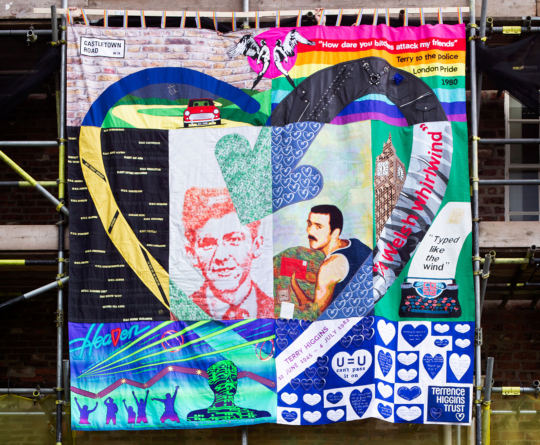
View On WordPress
#Aids#exhibitions#listings#Pearson Square#Terrence Higgins Trust#Terry Higgins Memorial Quilt#The Fitzrovia Chapel
0 notes
Text
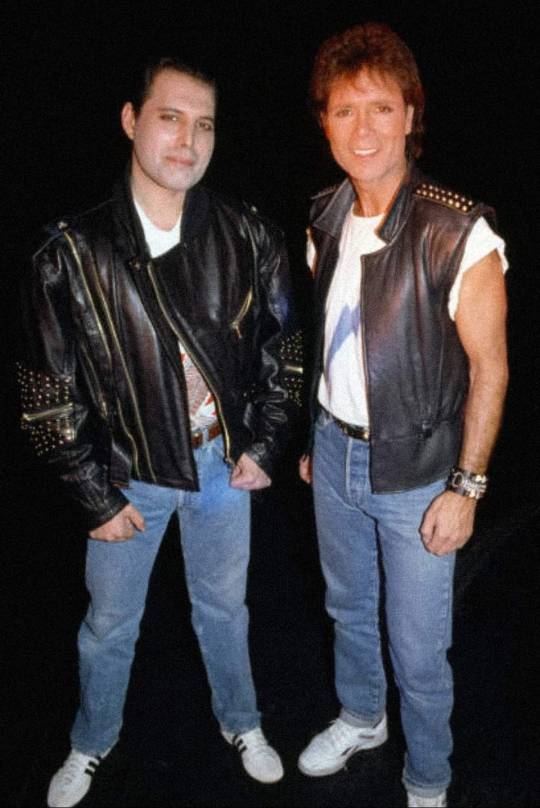
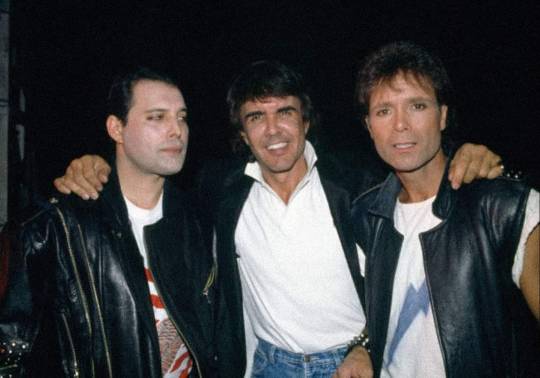
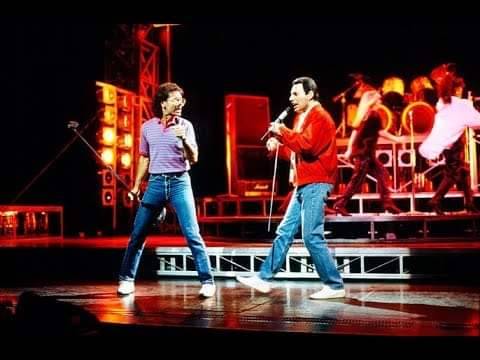
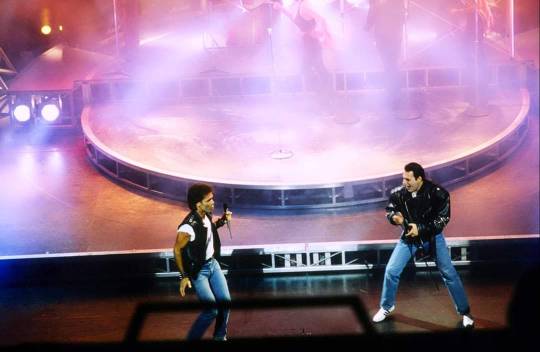
Today, on April 14th, 1988
Dominion Theatre, London, UK - Freddie Mercury made a guest appearance at a special charity performance in aid of the Terrence Higgins Trust, 'Time - The Musical', starring Cliff Richard.
👉 Freddie’s final public appearance singing live: "It's Only Rock'N'Roll" and "In My Defence" with Cliff and " It's In Every One Of Us"
Pics: London, UK, 1988: British musicians Cliff Richard, Freddie Mercury and Dave Clark pose together on the set of the musical "Time" at the Dominion Theatre.
👉 "Time" was written and created by by Dave Clark and David Soames
It originally starred Cliff Richard as The Rock Star, Chris Wilder, and the soundtrack featured the song "Time" recorded by Freddie Mercury
📸 Photo 1 and 2 by Duncan Raban/Popperfoto via Getty Images
📸 Photo 3 Freddie Mercury with Cliff Richard on the set
📸 Photo 4 Freddie Mercury with Cliff Richard during the live performance
#time the musical#1988#cliff richard#dave clark five#freddie mercury#queen band#london#zanzibar#legend#queen#brian may#john deacon#freddiebulsara#roger taylor#dominio theatre#terrence higgins#musical#Spotify
10 notes
·
View notes
Text
By: Andrew Doyle
Published: Apr 23, 2024
“All of my friends are dead.” It was said in his customary matter-of-fact tone, without the slightest hint of self-pity. This was Robin, my supervisor at university, who would often discuss his pre-academic life and what it was like to be a gay man during the worst of the Aids crisis. That he had survived at all struck him as incredible.
In those early days, the sense of an angel of death targeting a particular community seemed like the realisation of a nightmare. When it first emerged in the US it was known as GRID (gay-related immune deficiency). An article appeared in the New York Times on 3 July 1981 with the ominous headline: “Rare cancer seen in 41 homosexuals.” Some called it the “gay plague”.
Confusion turned into widespread panic, not limited to the gay community. The first time I heard of the disease was during a PE lesson at primary school. Such was the general ignorance that our teacher warned us not to borrow each other’s plimsolls or we’d catch Aids. Some time later I saw the government’s public health advert on the television; I remember little about it except the large tombstone with the dreaded four-letter acronym as an epitaph.
In the 40 years since the virus was identified, there has been a sea-change in attitudes. Whereas the government’s campaign set out to frighten people with the message “it’s a deadly disease and there’s no known cure”, a recent advert by the Terrence Higgins Trust reminds people that those diagnosed with HIV “can live a healthy, happy life just like anyone else”. Much of the stigma has dissipated.
The same is true of homosexuality itself. One could say that while the Aids crisis exacerbated the hatred and mistrust against an already beleaguered community, it also spurred activists onto the pathway to normalisation. Whereas the pursuit of a gay lifestyle was romanticised — or demonised — as a dance of Eros and Thanatos, a way to ensure that one remained beyond the scope of civilised society, today the very notion of being orientated towards one’s own sex is largely perceived as unremarkable. Those who bleat about their oppression as gay people in a climate of widespread tolerance are luxuriating in a kind of perverse nostalgia for a reality they could never comprehend.
For those who lived through it, the Aids crisis was a moment when the concept of a “gay community” actually meant something. Lesbians were instrumental in providing support for their gay brothers, and amid the loss there was a sense of greater solidarity. I remember seeing a production of Larry Kramer’s The Normal Heart in New York in 2004. The audience mostly comprised of older gay men, and Kramer was among them. Afterwards, people were visibly shaken from watching the worst of their past so unflinchingly dramatised. One man approached Kramer and, through his sobs, I heard him simply say: “thank you”.
Kramer has been credited as a kind of Cassandra figure, one who had warned that the hedonism of gay life in the late Seventies would lead to trouble. His novel Faggots (1978) was loathed by conservatives for its graphic depiction of the sexual free-for-alls of New York’s bathhouse culture, but it was also mistrusted by the gay community for its moralising implications. Its lead character is on an impossible quest to find meaningful love in a world of fleeting sexual encounters. Kramer was criticising what he saw as a sybaritic and morally vacuous culture, and the sense of an impending reckoning has led to the novel being interpreted as predicting the outbreak of Aids.
When the crisis exploded, Kramer was one of those calling on gay men to exercise sexual temperance, and to shut the bathhouses until the virus could be contained. For this he was accused of being a puritan and a traitor to the gay lifestyle. His play The Normal Heart is set around this time, and in one furious monologue a character rails against a Kramer-type figure for trying to make gay men feel ashamed of their own liberation.
For the ultra-religious, Aids was seen as a righteous punishment from God. Many had been appalled at the promiscuity that inevitably arises when women are no longer in the equation. Male sexuality has always been contained to a degree by the institution of marriage, but gay men had been forced to exist on the periphery. There was no need to abide by sexual mores, because the rules had clearly not been written with them in mind. In other words, sex became an integral aspect of their own defiance against the society that had shunned them.
It always seemed a catch-22. Gay men were loathed for their sexual licentiousness, and at the same time excluded from the very ethical framework that would, to a degree, offer some kind of incentive against it. In his 1982 lecture, “Rediscovering gay history”, the historian John Boswell addressed this fundamental contradiction and argued for the need for a gay archetype or moral aspiration. He pointed out that when a straight man cheated on his wife, he at least knew that he was falling short of society’s expectations. But the same could not be said for gay men:
“I think that part of the reason for the ambivalence of the intellectual establishment in the United States is that they can’t tell when they read a book like Edmund White’s States of Desire, whether the life of casual promiscuity it depicts represents a homosexual ideal or the failure of an ideal. Are they reading about what gay people should do, what they do, or both, or neither? So they don’t know how to fit it into their usual critical apparatus. They don’t understand what would be a departure from homosexual ethics because they don’t know what homosexual ethics would be. And neither do we.”
Boswell was right that this ambivalence existed within and without the gay community. When William Friedkin’s film Cruising was released in 1980, the most vehement opposition came from gay campaigners who feared that it would depict them as being inherently deviant. And yet the movie had been shot in the leather bars of New York City, and the real-life sex acts that were filmed were hardly atypical. This subculture may not have been reflective of gay society as a whole, but it certainly existed.
Perhaps it could be said that the activists who sought to ban Cruising won out in the end. Their implicit goal was that gay people could be brought under the aegis of heterosexual respectability — that they could, in other words, live as conventionally as everybody else. It didn’t surprise me at all, therefore, that it was a conservative government in the UK that eventually legalised same-sex marriage. It would appear that we have seen the cultivation in the Western world of the kind of shared ethical ideals that Boswell seemed to crave. Gay monogamy is no longer seen as an oxymoron.
Many gay rights groups, of course, opposed same-sex marriage. To them, it was a way to control gay people, to bring them within the same heteronormative yoke that dominated the rest of society. This debate echoed those of The Normal Heart, where there was a fear of an attempt to “civilise” those who had found freedom in occupying a realm outside of social convention. To be gay was to be different, and for many this was a source of pride. An older gay man once told me that sex was far more exhilarating when it was illegal. It meant that even the most casual sexual encounter was a little act of rebellion.
But even as tolerance has increased, anti-gay feeling has not gone away. The Aids crisis galvanised such prejudices, and of course religious fundamentalists have always opposed those who they deem to be acting against the wishes of their various gods. Today, these prejudices are resurfacing through the obsession with gender identity, an ideology that shames gay people for not being attracted to members of the opposite sex and has been responsible for the government-funded medicalisation of gay youth. In many ways, this is a “progressive” rehash of Section 28 of the Local Government Act 1988, with its prohibition in schools against the “promotion” or “acceptability of homosexuality as a pretended family relationship”.
The instinctive disgust that many people feel towards those who do not share their own sexual inclinations is seemingly hard-wired, and so what we call “homophobia” will always emerge in one way or another in a majority heterosexual culture. But at least to be gay is no longer defined solely by the sexual act, and that for one man to fall in love with another is widely considered to be an unexceptional fact of life. The gay rights activists of yesteryear weren’t necessarily calling for universal indifference, but perhaps we’ll get there in the end.
#Andrew Doyle#homophobia#gay rights#medical scandal#medical malpractice#medical corruption#same sex attraction#AIDS#AIDS crisis#HIV#gay history#same sex marriage#homosexuality#homophobia 2.0#woke homophobia#gender identity#gender ideology#gender identity ideology#religion is a mental illness
12 notes
·
View notes
Note
Hi, I was wondering if you guys could recommend any good UK trans charities? My workplace is doing some fundraising for it's diversity group and I want to try and push some good names forward.
Hi Anon,
This link provides a good list of trans charities in the UK:
10 notes
·
View notes
Text


Jonathan Bailey and the scarf he designed in support of the Terrence Higgins Trust last Fall. If you are interested in the auction, you can go here.
28 notes
·
View notes
Text

The Guardian - April 21, 1992
Credits to Roberto Macchi.
Aids rock concert attracts television audience of 1 billion in 70 countries
A mega musical tribute
David Pallister
AS MEGA music events go this was the daddy of them all. And all because a man of Persian extraction whose funeral took place under the rites of the Parsee religion died a hero of Aids awareness.
The Wembley Staidum tribute to Freddie Mercury yesterday was the sort of rock band-wagon that bands would have killed to get aboard.
An audience of up to one billion — bigger than Live Aid seven years ago and transmitted by satellite via 13 feeds to 70 countries — had a chance to see Elizabeth Taylor and Sir Bob Geldof appearing on the same stage. These things are made in heaven.
Such was the demand for tickets, which were sold out withing hours of the concert announcement, that touts were trying to buy outside the stadium before they could sell. Some £35 tickets were changing hands for £250.
The concert had a big message. A besequinned Ms Taylor jetted in from Los Angeles as president of the American Foundation for Aids Research. "Get off," shouted some yob. "I'll get off," she said, "but I've got something to say first."
The message was simple: "Every time you have sex, use a condom, every single time... And if you use drugs, don't share the needle."
In two weeks, she said, there will be as many HIV positive infections in the world as there were people there before her.
The audience of 72,000 fans were decked out with red ribbons, a symbol of Aids awareness. Millions of pounds will be generated for Aids research. The Terrence Higgins Trust has already received £1 million from the re-release of Queen's baroque anthem of 1985, Bohemian Rhapsody.
Queen's enduring success attracted a line-up of getting-on-wrinkly superstars.
Roger Daltrey from The Who, David Bowie, and Robert Plant of Led Zeppelin joined the three remaining band members for some of the Queen's greatest hits.
It was left to Elton John to sing the band's last ironic single, The Show Must Go On.
[Photo caption: A lookalike face in the crowd at the Wembley Stadium concert in honour of Freddie Mercury / PHOTOGRAPH: MICHAEL PUTLAND]
Stadium link with Mercury unable to catch his spirit
Adam (...) finds split second timings leave little room for emotion at the Freddie Mercury Concert for Aids Awareness.
SPONTANEITY and intimacy are the first casualties of the globally synchronised super-gig. Queen's achievement at Live Aid was to shoehorn all their strengths into a 20 minute set. But, although orchestrating a batch of the world's biggest rock acts with split-second precision at Wembley last night might prove to have been a great way to headline the global Aids crisis, it left no room for emotional bonding with the spirit of the late Mercury.
Mercury would probably have preferred it that way. He presented himself to the world in grandiose terms, and kept his inner life — and his illness — a secret. His presence on giant video screens was at least as imposing as the live acts.
With painstaking editing, it might even have been possible to reconstruct Freddie completely, just for the evening.
Still, one major benefit of international satellite TV link ups is that everything has to run to time. Thus, Metallica opened the concert moments after the scheduled 5pm start. More incredible still, the trio appeared to have found the secret of the perfect stadium-sized live sound. Their terse three-song set was melodic heavy metal at an extraordinary pinnacle of technical perfection.
Freddie's posthumous stature grew steadily. The rest of the first half featured acts playing their own material in tribute, apart from Extreme's slick Queen medley. But part two was the remaining members of Queen trying to recreate their old hits with guest vocalists. It worked only sporadically.
The crowd would have much preferred Robert Plant to sing Led Zeppelin songs than Queen's. And every time Seal takes the stage, he merely provides more ammunition to those who believe he can't sing.
The best bits were almost thrown away, like Bowie and Ian Hunter's rousing All The Young Dudes. It was George Michael who seized the senior statesman crown with his sobering Aids warning, and he hammered it home with Somebody To Love.
Only recently, an event of this scale and sophistication would have represented the limit of the possible, but this one will have to be judged on how effectively it conveyed its message.
17 notes
·
View notes
Photo
I'll add that in the UK the Terrence Higgins Trust have drop in services and information about local health services to help you get access to post exposure prophylaxis. You sometimes also see their reps on the hook up apps that you can speak to.
There are often things like hepatitis vaccines and monkey pox treatment available too. It doesn't take much effort to a responsible slut 👍
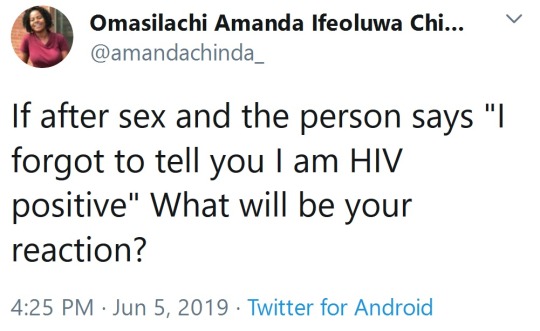


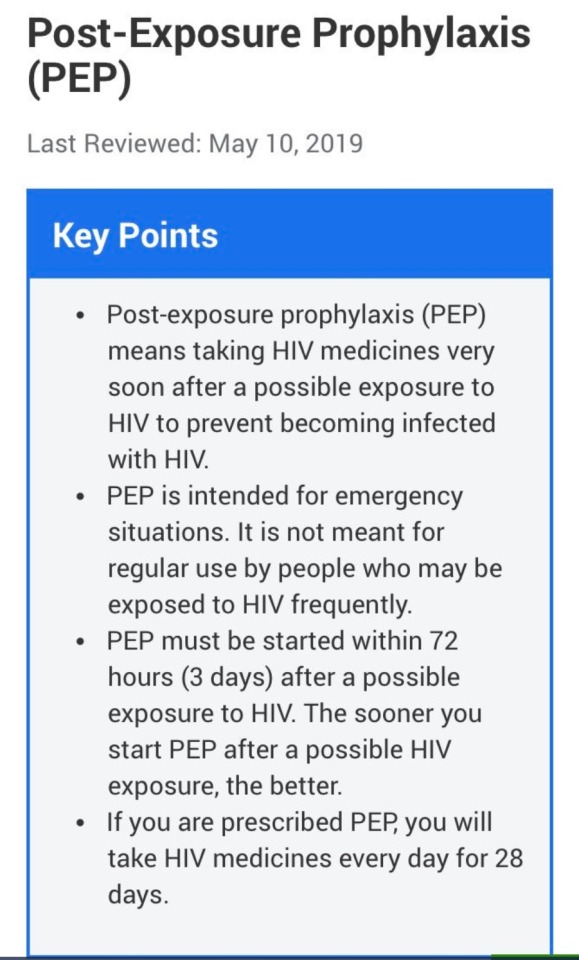
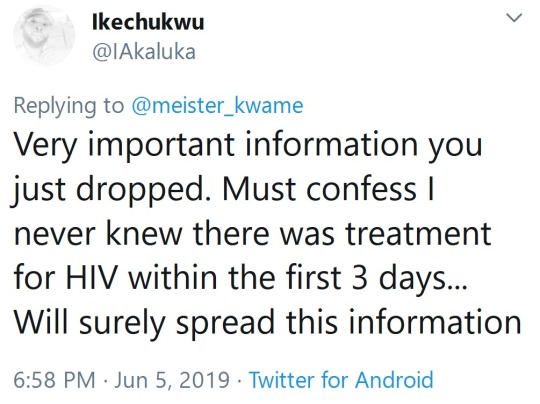
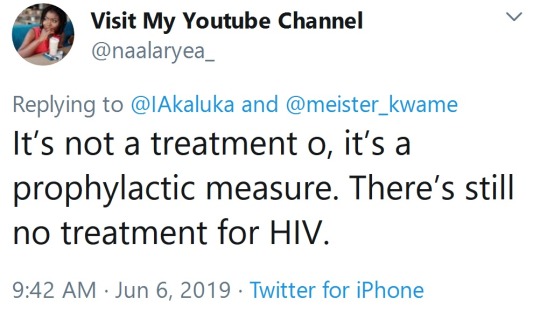
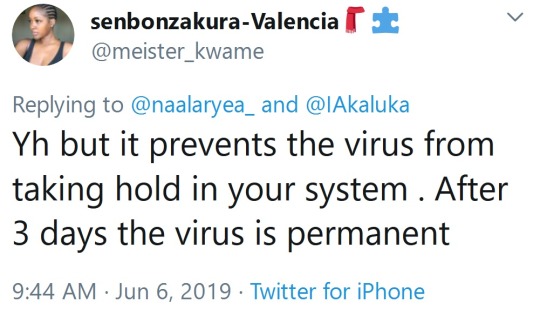
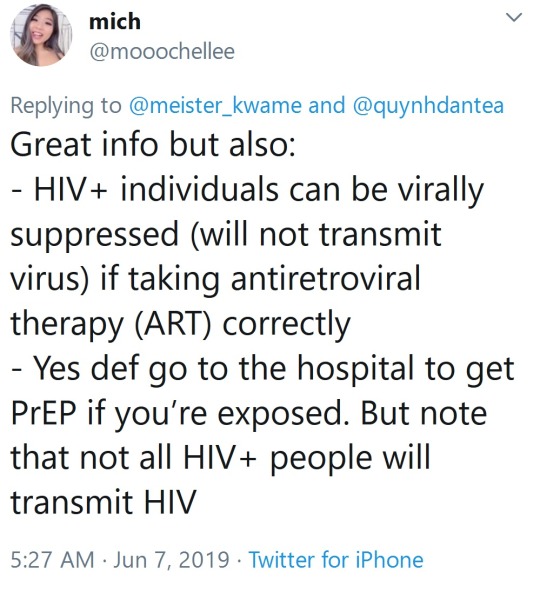
312K notes
·
View notes
Note
💚💚 here!! You've made me miss Irn Bru with your response to the last ask 😭 I used to live in Scotland for a while, and can't reliably get it anymore where I live now 😭😭😭
As for sweets, let's say proper sweets for now (aka candies). So, if you could only eat one kind of candy, which one would it be? I'm glad you like Twinkies - they give me the ick, and I'm happy to have fewer in the world I have to deal with!
Some more questions:
What color do you associate with the 141? Why?
What color do you associate with yourself?
What do you think your personality would smell like to other people (also the same question for the 141)? I really like ABO fics because they delve into a new way to describe personality (scent), and I eat it up every. Single. Time!
Finally, if you had a month with unlimited money, what would you spend on outside of your needs? This is to be spent purely on wants!
💚💚 anon! i'm glad you're back! i'll pop my reply to your fantastic questions under a cut because i'm feeling chatty but first HURRAY for getting to experience irn bru! and booooo for not being able to get it reliably any more! i'd be your irn bru dealer in a heartbeat if i wasn't flat broke and could afford the postage 😭
...So, if you could only eat one kind of candy, which one would it be?
the first thing that popped into my head was polo mints. i don't even eat them regularly now but i'd miss them if i never got to eat them again. they remind me of hanging out with my grandma. she'd always slip me a roll of polo mints when i was at her house.
What color do you associate with the 141? Why?
oooh good question! my brain immediately went "forest green" which is funny because that's the colour i most strongly associate with price. i guess i chose it because the 141 is price's!
What color do you associate with yourself?
navy blue but that's probably because it's the most prominent colour in my wardrobe!
What do you think your personality would smell like to other people (also the same question for the 141)?
oooooh! i don't know! for myself maybe something with patchouli notes? or petrichor? earthy scents at the very least and probably coffee too.
as for the 141. i think they all have co-mingled scents. there's a blend of accelerant (soap), woodsmoke (gaz), rust (ghost) and wool (price) in varying concentrations on all of them. are they particularly pleasant smells? no not really but my god they are memorable
Finally, if you had a month with unlimited money, what would you spend on outside of your needs?
catch me donating as much as possible to various gofundme campaigns, charities like the terrence higgins trust, shelter cymru, umbrella cymru and commissioning as many artists as possible so i could fill my house with art!
#pfh answers#💚💚 anon#<- i remembered your tag this time!#i loved these questions friend! i hope you're having a wonderful timezone!
0 notes
Text
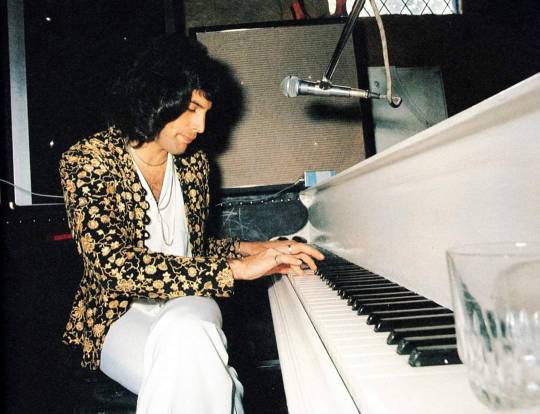
Today, on 9th December, 1991 - Queen Story!
AA-side “Bohemian Rhapsody”/“These Are The Days of Our Lives” single released
Released "Bohemian Rhapsody" as a double-A single backed with "These Are The Days Of Our Lives" a tribute after Freddie Mercury's death in 1991
👉 👉 "He never asked for sympathy from anyone else. He was a very strong person and always liked to be in control of his own destiny. He knew that if he did announce it his life would become a circus and he would be prevented from going about his business, which was making music. He wanted it to be business as usual until the end.
There was no drama, no tears in his eyes.
He was incredibly self-contained"
- Brian May
👉 - ‘These Are The Days Of Our Lives’ won a Brit Award in 1992 for British Single of the Year -
👉 The proceeds are donated to the Terrence Higgins Trust, for the fight and prevention of AIDS
📸 Pic: Summer 1975, Surrey, UK - Freddie Mercury at Ridge Farm
Queen at Ridge Farm rehearsing for the album 'A Night at the Opera'
#these are the days of our lives#bohemian rhapsody#1975#freddie mercury#queen band#london#zanzibar#legend#queen#brian may#john deacon#freddiebulsara#roger taylor#1991#Spotify
13 notes
·
View notes
Text
Prince Harry Carries Forward Princess Diana’s Legacy, by Honouring the 40 Years of Terrence Higgins Trust for Their Work to End HIV and Aids
The Duke of Sussex, Prince Harry, has always followed the path of his beloved, late mother, Princess Diana. Be it in terms of virtues or practices, the mother and son duo resonate on levels unmatched. The Duke admitted the same to himself a couple of days ago in the live-stream conversation. However, he not only speaks of it, but also puts his word into action. Credits: Imago After having an…
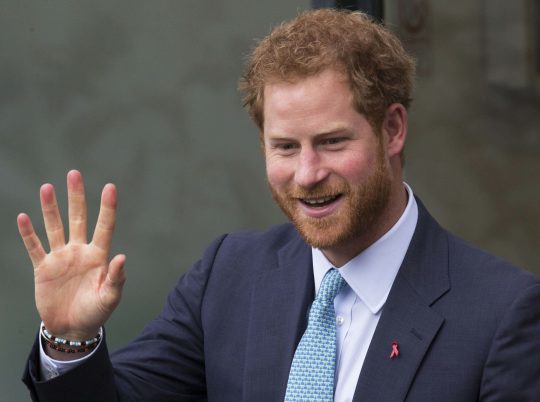
View On WordPress
0 notes
Text
Image description: A drawing of sperm approaching an egg cell. Description ends.
Update: In the years since Planned Parenthood made the above blog post in 2013, some links broke. Here's where you can now find the same two sexual health guides for transgender women that they linked to.
The first link was for the PDF book Brazen 2.0: Trans Women's Safer Sex Guide, produced by the organizations The 519 and CATIE. That page also has a French language version of the same book.
The second link was for what has become a collection of articles by the Terrence Higgins Trust called "Sex and sexual health for trans women and trans feminine people." (The old version of it, a PDF booklet, is in this archive.)
All of these are tasteful, practical health education resources. Though their texts talk in specific ways about anatomy, medical transition, sex acts, sex work, safer sex, and sexually transmitted infections, none of them have explicit pictures, though some pictures in Brazen are suggestive.
Can my trans girlfriend get me pregnant?

Someone asked us:
My girlfriend is trans and has been doing hormone replacement therapy for about a year. About how likely is it that she can still get me pregnant?
The short and simple answer is: anytime your girlfriend’s semen° (cum) gets into your vagina° or onto your vulva°, you’re at risk for pregnancy.
The fertility of a trans woman or trans* feminine person depends on how they’ve decided to transition. Some trans women lose their ability to create a pregnancy, and some have no change in their fertility at all. Many end up falling somewhere in between.
So how does Hormone Replacement Therapy (HRT) affect this?
Each person’s body responds differently to HRT. It usually lowers the ability to get or keep an erection, and could also reduce sperm count. But don’t rely on HRT as a form of birth control by itself. If you want to avoid pregnancy, you and your girlfriend should explore all your birth control options. Luckily, there are lots out there!
You can use one of many types of hormonal birth control (such as the pill, shot, implant, Mirena IUD), or the non-hormonal (ParaGard) IUD.
Barriers, like condoms, are another option (and the only way to prevent STDs as well as pregnancy).
Since people taking HRT can have trouble getting erections, condoms that go onto the penis° may slip off. A good alternative is an internal condom (also known by its brand name, the FC2 Female Condom®). These condoms are worn inside a vagina° or anus, so you’ll still be protected from pregnancy and STDs even if your partner’s erection comes and goes.
Plannedparenthood.org can provide more information on birth control. We also recommend checking out these super awesome sexual health guides made specifically for trans women.
-Mylanie at PPFA
°These may not be the terms that you use to describe your own bodies, but we hope that the information in this answer is still clear enough to help you and your girlfriend make a well-informed decision.
#rated PG-13#originally posted on November 9 2013 by PlannedParenthood#Planned Parenthood#content warning#safer sex#sex education#contraception#transgender#relevant for transgender women and trans feminine nonbinary people and others on the male to female spectrum#relevant for people who can get others pregnant#relevant for people who can get pregnant#sex organs mention#pregnancy#hormones#screen reader friendly#if you don't want to see this content from my blog: i always tag thoroughly so you can blacklist the tag 'sex education' or anything else#condom#internal condom#relevant for people in relationships where someone could get pregnant
741 notes
·
View notes
Text
Prince Harry pens letter about Princess Diana’s ultimate ‘legacy’
Prince Harry honored Princess Diana’s philanthropic work with the HIV and AIDS community in a new letter marking the 40th anniversary of the UK’s Terrence Higgins Trust. The 38-year-old estranged royal claimed that his late mother’s involvement with the HIV and sexual health charity was a “big piece” of her legacy. It is named after Terrence “Terry” Higgins, who was one of the first people to die…
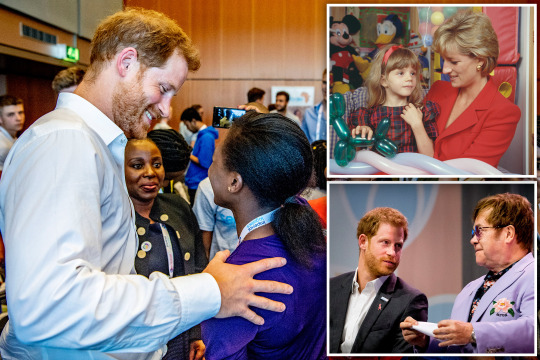
View On WordPress
0 notes
Text
Prince Harry pays heartfelt tribute to mum Princess Diana for her legacy in fighting HIV
Prince Harry got emotional as he recalled his mother Princess Diana’s ground-breaking awareness-raising efforts, saying he was proud “to continue her advocacy”. The Duke of Sussex paid heartfelt tribute to his mother saying that the fight against HIV was a “big piece of my mum’s legacy”, in a message marking the 40th anniversary of the Terrence Higgins Trust sexual health charity. “Like many, my…

View On WordPress
0 notes
Text
God, I wish we were in the abyss full of gay sex. Maybe people would be more apt to make smart decisions and use protections from STDs when they become available (https://www.tht.org.uk/news/heterosexual-hiv-diagnoses-overtake-those-gay-men-first-time-decade)
y'all don't get it entirely tho, high-anxiety, high-chaos viewpoints of human sexuality are equal parts fascinating, depressing, and funny to me because they rely on a strong sense of imminent disaster and a favorable "looking back" on a Normal and conservative past, but their material hasn't changed in 300+ years
6K notes
·
View notes